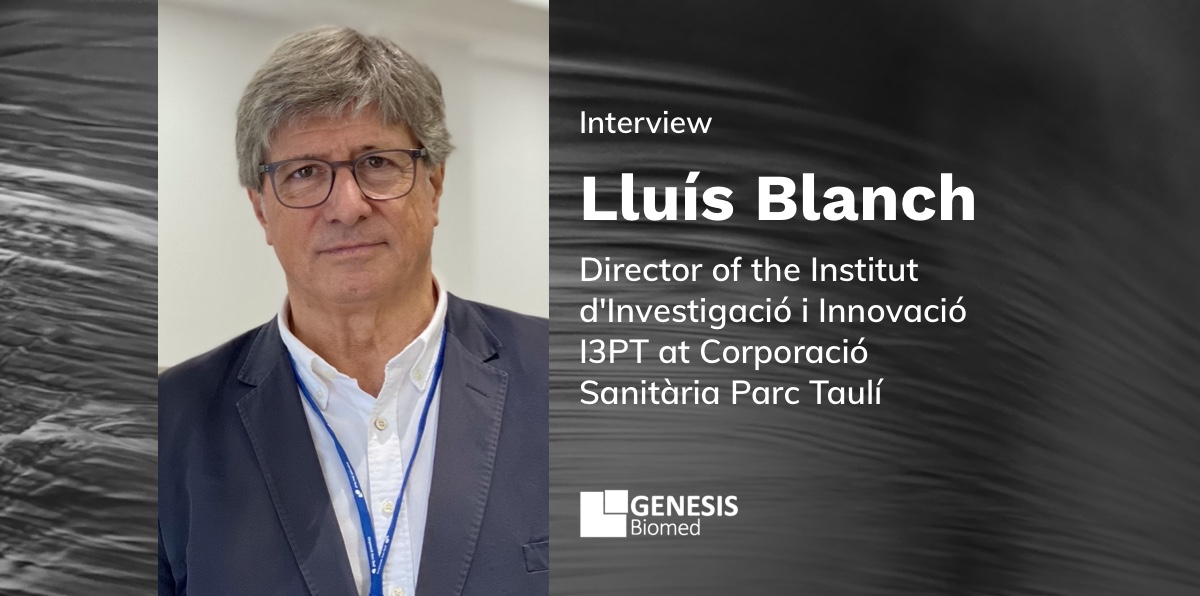11 Apr Interview Lluís Blanch – Director of the Institut d’Investigació i Innovació I3PT and current Coordinator of the ITEMAS Platform – ISCIII

Lluís Blanch: “The mission of ITEMAS is to accelerate industrialisable innovation projects arising from hospitals in Spain”.
Lluís Blanch is an advisor to the Critical Care Centre at Parc Taulí University Hospital. He is Director of Research and Innovation at Corporació Sanitària Parc Taulí and Director of the Institut d’Investigació i Innovació Parc Taulí – I3PT. He is also Coordinator of the Platform for dynamisation and innovation of the industrial capacities of the National Health System (ITEMAS-Instituto de Salud Carlos III. Ministry of Science and Innovation), Associate Professor of the Department of Medicine at the University of Barcelona and member of the Consell per a la recerca i la Innovació de Catalunya (CORICAT).
What role do platforms like ITEMAS play in technological progress and innovation?
ITEMAS arises from the need for a platform to promote and accelerate industrialisable innovation projects arising from Spanish hospitals. Therefore, we are talking about projects that are going to return to society and that can be industrialised by companies in our country, so that they can subsequently be adopted by the Spanish healthcare system and even have an international projection. ITEMAS was created with this objective in mind.
In the first decade of the 2000s, the figure of the UAI (Innovation Support Units) was implemented in hospitals. What did the creation of these units mean in the field of innovation in hospitals?
The Innovation Support Unit (UAI) of the Hospitals is a specialised unit that captures ideas from professionals and supports them, among other services, in the protection of intellectual property. Once protected, the UAI examines whether these ideas can be taken forward on the path of innovation. Some of these ideas will reach the market, many will not, but the fundamental role of the UAI is to foster innovation in hospitals. The UAI’s members are specifically trained technical innovation professionals and are deployed in both large and small hospitals.
In April 2022, the ITEMAS project accompaniment programme was launched, where projects considered to be a priority receive support in different aspects (business, support in the creation of spin-offs, financing and accompaniment). What is your assessment of the experience?
This is an initiative to accelerate projects in those aspects that exceed the capabilities of the hospital’s own innovation unit. The purpose of this programme is to cover those aspects in the final part of the innovation, such as the search for funding for the transfer or the analysis of the type of transfer to be carried out. We consider the experience to be very positive, and in fact the number of projects that have joined the programme has been increasing. The projects that enter this programme must meet certain conditions, such as: they must be of high quality, provide a solution to an unmet need, return to society (patients, etc.) and also be adopted by the system and be susceptible to investment; when a project meets these characteristics, it enters this acceleration process where it receives a series of services with the aim of reaching a successful outcome.
How is ITEMAS adapting to the irruption of new technologies such as robotics, AI (Artificial Intelligence), VR (Virtual Reality), AR (Augmented Reality), nanotechnology, etc?
ITEMAS is adapting well because most of the projects we accelerate are in these fields. ITEMAS also favours the integration of non-medical professionals in hospitals, and we are talking here about specialists in data science, telecommunications, robotics, additive manufacturing, etc., because ensuring all these projects requires the integration of these professional profiles. Innovation projects like these require multidisciplinary and interdisciplinary participation and this has meant a new window for projects in hospitals that will also require public-private collaboration, in a different sense from what has been the case until now. We will probably not be surprised that in a few months, perhaps in a few years, we will have R&D&I from companies in hospitals, because they need our knowledge and we need theirs, and therefore we must work together.
How do you value the public-private dialogue spaces that you carry out, for example with FENIN and the Spanish Society of Biomedical Engineers (SEIB), and should they be extended to other associations?
This question is linked to the previous one. We need to hold match-making meetings with the employers’ organisation FENIN to find out what they have, what we have, what problems we have and what we need from industry to solve them. This can only be done in forums where we meet together, exchanging experiences and, above all, challenges. If, for example, we have a challenge, we can explore the solution at two levels: both in the companies’ organization, which is the industry, and in the Spanish society of biomedical engineers, because these are disciplines that are increasingly necessary in hospitals and therefore it is necessary to work with them. For example, we need interaction in aspects such as Omics sciences, robotic nanotechnology, artificial intelligence, etc., which are going to be the future of research and innovation in hospitals. Therefore, to the question of whether we should extend our dialogue to other associations, the answer is “yes” because the problems, ideas and progress of research and innovation in health are increasingly encompassing more and more disciplines.


